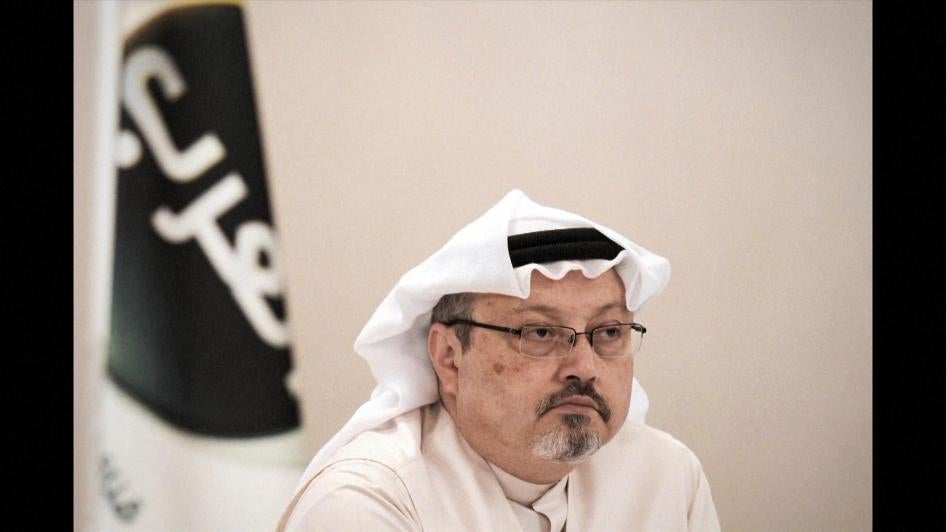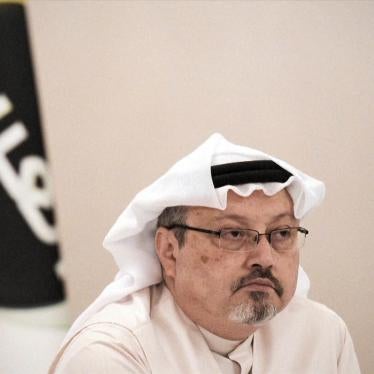Once there was a ruler of a Middle Eastern country. He was in his 30s, presenting himself as a reformer, but he brooked no dissent as he set about consolidating power. He disliked one dissenter in particular, a former palace insider who lived in self-imposed exile and traveled the world criticizing the ruler’s repressive ways. The dissenter also denounced an aggressive war that the ruler was pursuing against his neighbor.
One day the dissenter was lured to a foreign city, detained and never heard from again. The ruler denied having anything to do with the disappearance of his nemesis. Yet the ruler’s henchmen were recorded making quick trips to that foreign city around the fateful day.
While you might be thinking of Saudi Arabia, journalist Jamal Khashoggi and the story splashed across the front pages right now, the ruler in question was actually the late King Hassan II of Morocco. The dissident was Mehdi Ben Barka, the king’s former tutor. Ben Barka’s abduction occurred 53 years ago this Oct. 29. Each year on that date, Ben Barka’s sons and a small group of Ben Barka faithful gather at the site of the abduction, across from the famed Brasserie Lipp on the Boulevard St. Germain in Paris. Their long-standing, and unfulfilled, demand: that Morocco, and foreign intelligence agencies, finally disclose all they know about the fate of the “Moroccan Che Guevara.”
Ben Barka was not Khashoggi, the exiled, moderately critical Saudi journalist who entered the Saudi consulate in Istanbul on Oct. 2 to retrieve personal documents and has not been heard from since, and who is feared dead. But the "Ben Barka affair” carries important lessons about how to respond to the alleged slaying of the Saudi journalist — as well as the cost of failing to act.
In 1961, King Hassan II succeeded his father on the throne. The following year, independent Morocco adopted its first constitution, giving the monarch vast powers but also allowing a multiparty parliament against the single-party model that was the norm in the era of decolonization.
Hassan II had counted on neutralizing political parties by co-opting them and playing them off against one another. But Ben Barka refused to play the game. He also denounced Hassan II for entering a border war in 1963 against Algeria, earning him a death penalty in absentia for high treason.
More than 50 years later, the full story of what happened to Ben Barka has still yet to emerge. But a trial in a French court and numerous investigations by journalists determined that Ben Barka, leery of plots against his life, had been lured to Paris where two French policemen, in cahoots with French and Moroccan intelligence agents and French mobsters, intercepted him in broad daylight at the famed Brasserie Lipp and delivered him to a villa in the Paris suburbs. There, Moroccan agents reportedly tortured him to death in the presence of Mohamed Oufkir, the king’s right-hand man.
The accounts of what happened conflict. Some say his captors killed Ben Barka intentionally, others that he was killed by accident before they could spirit him to Morocco. His body was never found.
French President Charles de Gaulle fumed that a national intelligence agency, the SDECE, had aided Moroccan agents in this abduction on French soil. In response, he reshuffled the SDECE and put the Defense Ministry in charge of it. De Gaulle also demanded that Morocco turn over Oufkir and, when the king refused, broke off diplomatic relations. In 1967, a French court convicted both Oufkir and some of the lower-level players in the crime and gave Oufkir a life sentence in absentia for his role.
With the souring of Franco-Moroccan relations, other Western countries stepped in to build trade and strategic relations with Morocco, an ally in the Cold War. It was not until Georges Pompidou became president in 1969 that France made up with its former colony and put the "Ben Barka affair” behind it. Since then, faced with tireless lobbying by Ben Barka’s family and supporters, France has declassified some documents but not the intelligence files that might fully reveal Ben Barka’s fate and the role of French government agencies in it.
In Morocco, a truth commission established in 2004 after Hassan II’s death said it had reached a dead end in unraveling the Ben Barka case as a result of the noncooperation of relevant agencies and officials.
Western powers may have shed no tears over the liquidation of a socialist firebrand during the Cold War. However, their failure to demand accountability for the crime on French soil may have emboldened the king. He went on for the next quarter-century to crush his domestic opponents of every political persuasion, his security agencies disappearing them by the hundreds or imprisoning them after systematic torture and mass, unfair trials, sometimes in secret prisons — as the truth commission set forth in some detail. Moroccans refer to that era as “the years of lead.”
Khashoggi, a former adviser to the Saudi royal family, clearly made enemies through his criticism of the regime. His disappearance, like that of Mehdi Ben Barka, may be breathtakingly brazen, but it comports with Crown Prince Mohammed bin Salman’s government’s ongoing practice of persecution of even the mildest of critics, down to the women who publicly demanded an end to the ban on women driving (which was lifted in June).
Western governments, lulled by Saudi Arabia’s oil wealth and massive arms purchases and investments abroad, as well as its strategic significance, have rarely challenged its atrocious rights record. The blunt calls that some are now making for answers about the fate of Khashoggi — supported by some Western corporate executives who have never before spoken up about Saudi abuses — has put the crown prince on the defensive internationally for the first time.
This inflection point should not be wasted. The international community needs to challenge the crown prince’s idea of “top-down reform” that crushes underfoot all reformists other than himself.
On the 40th anniversary of Ben Barka’s disappearance, the mayor of Paris presided over the dedication of the spot across from the Brasserie Lipp as la “Place Mehdi Ben Barka.” Perhaps someday a plaque will be placed outside the Saudi consulate in Istanbul commemorating Khashoggi’s disappearance. Let it not also commemorate governments’ failure to stand with him and all other victims of a brutal government.










